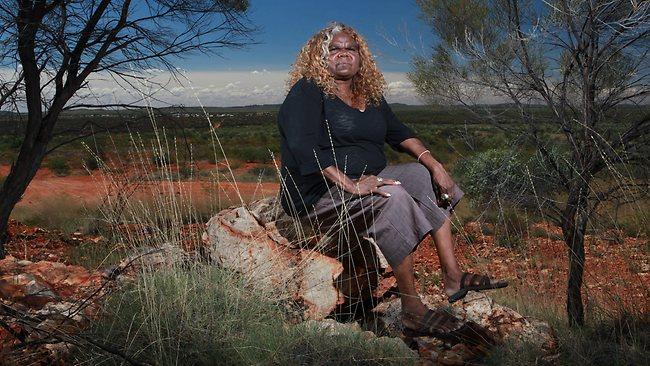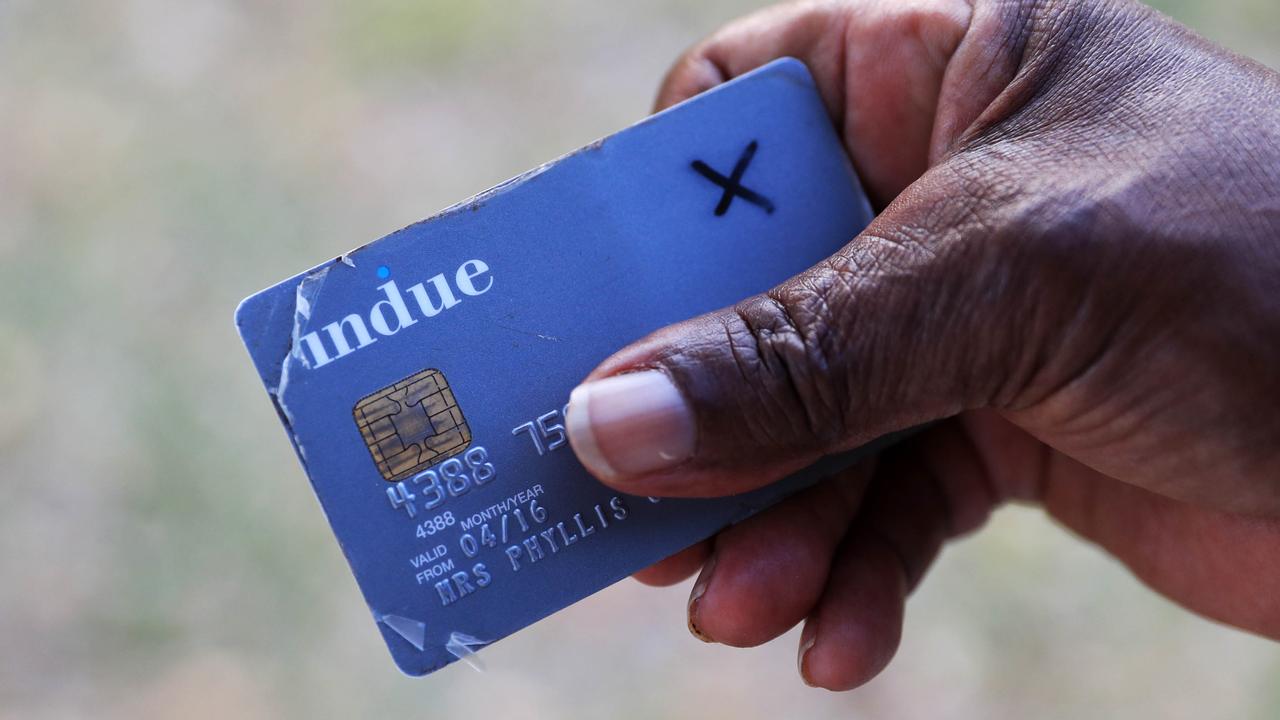Amnesty a racist organisation, says Bess Price
WARLPIRI woman Bess Price has accused Amnesty International of being an undemocratic and racist organisation.

WARLPIRI woman Bess Price has accused Amnesty International of being an undemocratic and racist organisation, while attacking its indigenous rights campaigner Rodney Dillon as a "white blackfella" and a "physically white English-speaking Tasmanian".
Ms Price's angry attack came after Amnesty activists wrote to Northern Territory election candidates, including Ms Price, seeking their views on Aboriginal homelands, but it has been brewing since Amnesty condemned the NT intervention in June.
Mr Dillon, a long-time Aboriginal activist and former ATSIC commissioner for Tasmania, was at a remote community in the NT yesterday and uncontactable. A spokesman for Amnesty said the organisation worked in partnership with Aboriginal communities in central Australia.
But in a long, written response, Ms Price, a Country Liberal Party candidate at the August 25 election and an outspoken supporter of the intervention, claimed Amnesty had done nothing but treat her and her people with contempt while turning "a deaf ear" to the most desperate and marginalised.
The attack comes after her appearance on the SBS Insight program on Tuesday, where she told Aboriginal lawyer and academic Mark McMillan, "you totally look like a whitefella to me".
Mr McMillan was one of nine pale-skinned Aborigines who successfully took racial discrimination action against News Limited columnist Andrew Bolt in the Federal Court last year.
Ms Price's anger came after being contacted by two members of Amnesty's Alice Springs group who had asked NT candidates to outline their position on Aboriginal homelands, including School of the Air education in "first languages" and increased funding.
Before launching her attack, Ms Price replied that her family owned its traditional lands through the NT Land Rights Act and had been involved in the development of outstations since the movement began in the 1970s.
In her August 7 email, Ms Price slammed Amnesty for sending Mr Dillon and a Yorta Yorta woman from the Victoria-NSW border area, Monica Morgan, to the NT to assess the intervention, at a time when Ms Price chaired the NT's Indigenous Affairs Advisory Council. "Your organisation sent a white blackfella from Tasmania, a wealthy man, and a woman from Victoria claiming to be indigenous who never met me or tried to talk to my people and you believed what they told you," she said.
"Your organisation treated me and my people with contempt and you still do. Your organisation is undemocratic and racist.
"Would you send an Italian-American of mixed heritage to Russia to consult with them meaningfully because he is of European descent and therefore will understand the Russians? Why do you think a physically white, English-speaking Tasmanian would better understand my own people than I do?"
Ms Morgan, indigenous peoples' rights manager at Amnesty in Australia, said last night the organisation "respects the right for all Aboriginal peoples to be able to speak on issues that affect them directly, including Bess Price".
"Over the last five years, Amnesty International has been speaking with hundreds of Aboriginal people in all parts of the NT including from Yuendumu," she said. "We also liaise very closely with Aboriginal organisations in the NT that look after law, health and land councils. It is unfortunate that I was unable to meet and speak with Bess Price on a visit to the NT, and I'd be more than happy to meet and discuss any of our work in the future. We talk to an enormous diversity of people, and the overwhelming majority of Aboriginal people we have spoken to over the past three years have said that the NT intervention has negatively impacted their rights."
Ms Price said that when Amnesty held meetings in Alice Springs, organisers "hand pick their Aboriginal spokespersons and then coach them on what to say". She said while Aboriginal critics of the intervention Rosie Kunoth Monks, Djiniyini Gondarra and Barbara Shaw had a right to their opinions, "they do not speak for all of us".
"You turn a deaf ear to those who are most vulnerable, to the most marginalised, to the women and children who are suffering so much in our communities and town camps," she said. "You take no notice of the NPY Women's Council although they speak for the women who have 60 times the chance of dying from domestic violence than those in mainstream Australia. You go out of your way to deny their voice a hearing. So much for human rights.
"When Aboriginal women in Central Australia ask for help, when they are killed, raped and beaten, when they cry for their abused children, you ignore them and you support those who are oppressing them. When the government tries to do something for them you call them racist and you blather on about the UN."
Ms Price said the best that could be said of Amnesty activists "from rich families in southern cities" was that they were well-meaning, but young, idealistic and naive. She ended by demanding some answers from the Amnesty activists, including: "Who are you and how long have you been in our country?"
Amnesty said in a statement that it worked in partnership with the Alyawarr and Anmatyerr communities of the Utopia homelands in central Australia.
"The research conducted for Amnesty International's report, 'The land holds us: Aboriginal Peoples' right to traditional homelands in the Northern Territory', used a participatory human rights-based approach and took over three years to complete."


